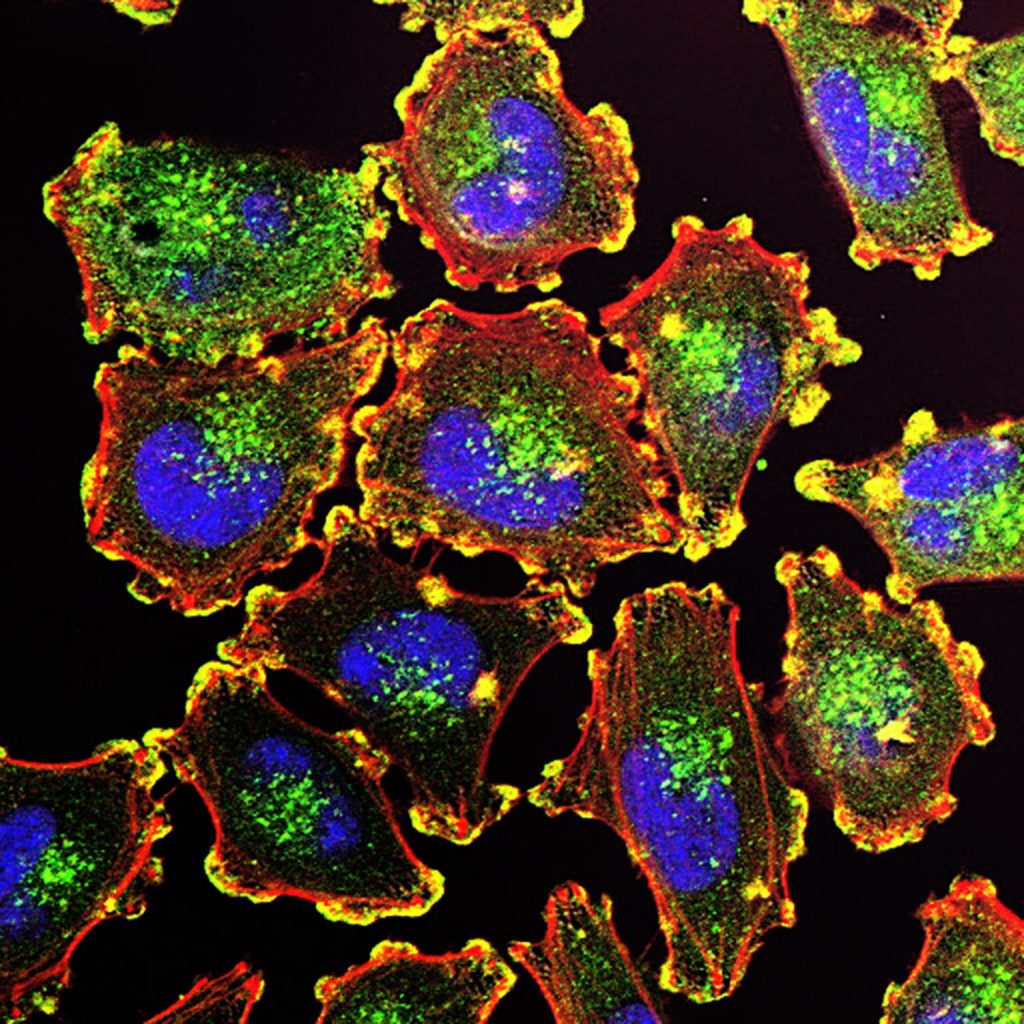
B cells are thought to play a critical role in innate and adaptive immunity, but their exact role in anti-tumour immunity remains unknown. Looking at B cells with a technique called single-cell profiling, which looks at all the genes in the cell, researchers found a protein that – when deleted – reduced tumour growth. The researchers write in Nature that this regulator could be a target for new cancer treatments.
The team, consisting of immunologists at Brigham and Women’s Hospital and dermatologists from Massachusetts General Hospital, identified a subset of B cells that expands specifically in the draining lymph node over time in mice with melanoma tumours.
They found a cell surface receptor called TIM-1 expressed on these B cells during melanoma growth. They also characterised multiple accompanying cell surface proteins that were involved in the B cell’s immune function. Interestingly, they found that deleting a molecule TIM-1, but not any of the other accompanying proteins, dramatically decreased tumour growth. The researchers concluded that TIM-1 controls B cell activation and immune response that combats cancer, including activating another type of the killer tumour-specific T cells for inhibiting tumour growth.
“The collaboration across institutions was extremely fruitful as we combined our immunology expertise at the Brigham with work at David Fisher’s MGH laboratory where seminal discoveries in skin malignancies have been made,” said lead author Lloyd Bod, PhD, of the Department of Neurology at the Brigham, who conducted this work while completing his postdoctoral fellowship at the Brigham. “The collaboration allowed us to test and demonstrate the therapeutic potential of targeting TIM-1 in melanoma models.”
Source: Mass General Brigham

